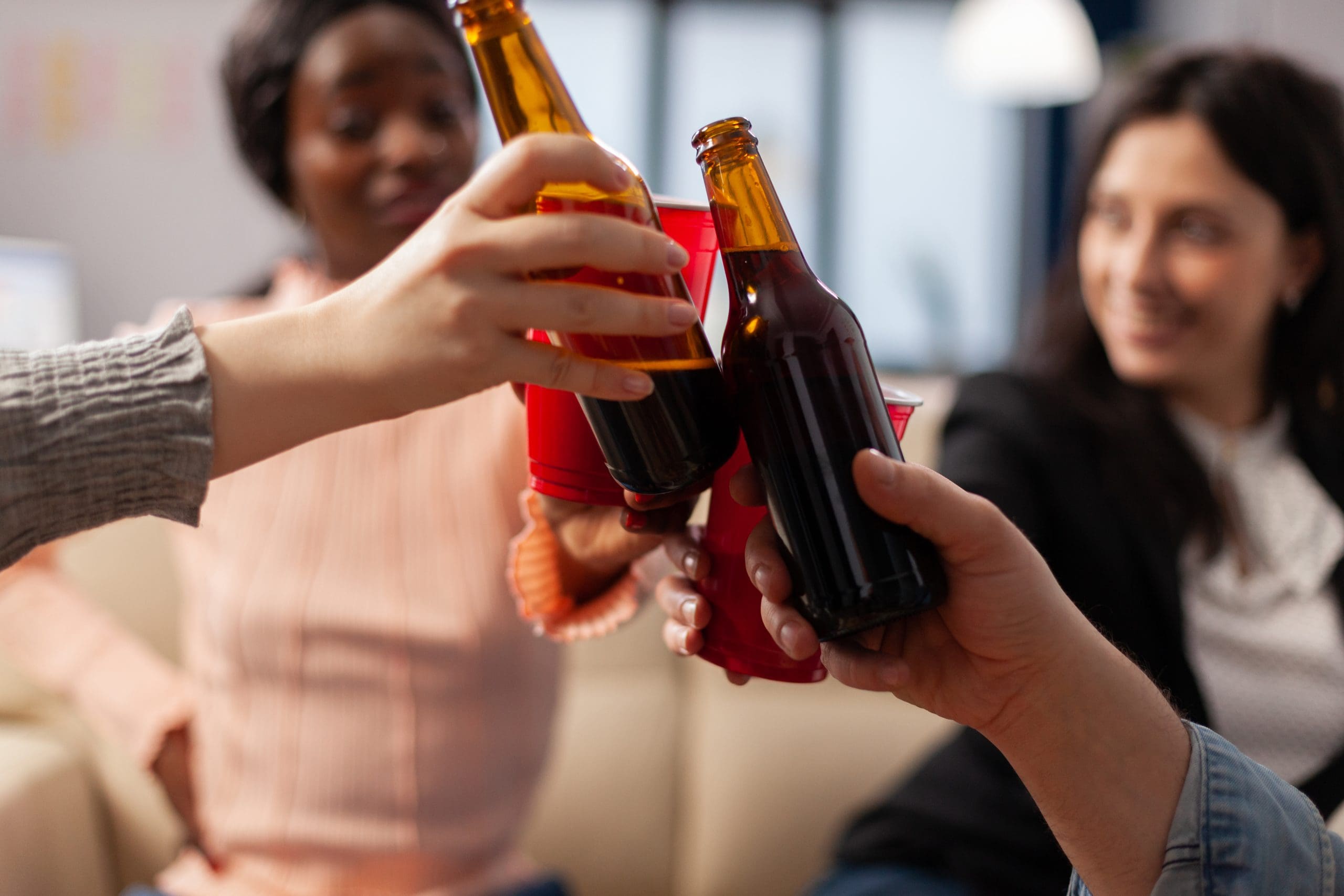Quick Summary:
- Teenagers are at risk of alcohol use due to various environmental, social, and personal factors.
- Common influences include peer pressure, family history of alcoholism, and exposure to media glorifying alcohol use.
- Understanding these factors can help in preventing alcohol misuse and guiding teenagers toward healthier decisions.
- Professional support is available for families struggling with teen alcohol use and addiction.
15 Factors That Can Potentially Increase a Teenager’s Alcohol Use
Teenage years are a time of self-discovery, new experiences, and social challenges. Unfortunately, it is also a period where many young people are exposed to alcohol, sometimes with devastating consequences. Parents, educators, and community members often ask, “which factor can potentially increase a teenager’s alcohol use?” There isn’t just one cause; instead, multiple factors can contribute to a teenager experimenting with alcohol or developing harmful drinking habits. Below are 15 examples of factors that can potentially increase a teenager’s alcohol use.
1. Peer Pressure
One of the most significant factors that can influence a teenager’s alcohol consumption is peer pressure. Teens are highly influenced by their friends and social groups. If their peers engage in drinking, they may feel compelled to join in, regardless of their personal feelings about alcohol. Peer pressure is often the most visible factor contributing to underage drinking.
2. Family History of Alcoholism
A teenager with a family history of alcoholism is at a higher risk of developing similar habits. Genetic factors play a role in how a person processes and reacts to alcohol. Additionally, if a teen grows up in a household where alcohol use is normalized or excessive, they may be more likely to mimic those behaviors.
3. Stress and Anxiety
Many teenagers turn to alcohol as a way to cope with stress or anxiety. High school and social pressures, academic expectations, and personal struggles can overwhelm teenagers. Unfortunately, some teens view alcohol as an escape or a way to relax, which can lead to misuse.
4. Lack of Parental Supervision
Teens who grow up without consistent parental supervision or clear boundaries are more likely to experiment with alcohol. Parents who do not set firm rules around alcohol use or who are unaware of their child’s activities may inadvertently create an environment where alcohol misuse is more likely.
5. Social Media and Popular Culture
Today’s teenagers are constantly exposed to images of alcohol use in movies, TV shows, music videos, and social media platforms. Many of these media portray alcohol in a glamorous or fun light, encouraging teens to view drinking as a cool or normal activity. This glorification can significantly influence a teen’s attitude toward alcohol consumption.
6. Easy Access to Alcohol
When alcohol is readily available at home or through friends, teens are more likely to drink. In some cases, parents may leave alcohol unsecure, or teens may have friends with older siblings who can purchase alcohol for them. Easy access removes barriers to experimentation.
7. Low Self-Esteem
Teens struggling with low self-esteem are often more vulnerable to experimenting with alcohol. They may drink to fit in with others, boost their confidence, or numb feelings of inadequacy. This can quickly turn into a dangerous habit as they begin relying on alcohol to feel good about themselves.
8. Academic Challenges
Failing grades, academic pressures, or feeling overwhelmed by schoolwork can lead some teenagers to seek relief from alcohol. Some may turn to alcohol as a way to cope with the stress of school or to escape feelings of inadequacy related to academic performance.
9. Curiosity
Simply put, many teens drink because they are curious. They want to know what it feels like to be intoxicated, or they see their peers having a good time and want to try it for themselves. Curiosity, combined with easy access, often leads teens to experiment with alcohol.
10. Sibling Influence
Just as friends can influence alcohol use, so can siblings. Older siblings who drink can set an example that younger siblings follow, either because they want to be like them or because they are exposed to drinking behaviors at home.
11. Mental Health Issues
Teens suffering from depression, anxiety, or other mental health disorders may turn to alcohol as a form of self-medication. While they may believe that drinking helps them feel better, alcohol can actually worsen their symptoms over time, leading to a dangerous cycle of dependency.
12. Traumatic Experiences
Teenagers who have experienced trauma, such as abuse, neglect, or the loss of a loved one, may be more prone to alcohol use as a way to numb their pain. Trauma often leads to emotional distress, and without proper support, teens might turn to alcohol to cope with their feelings.
13. Rebellion
Teenagers often push boundaries and test limits, and drinking alcohol can be one way they do this. Some teens may drink as an act of rebellion against their parents, authority figures, or societal norms. They may see drinking as a way to assert independence or show that they are in control of their own lives.
14. Party Culture
Many teens are introduced to alcohol at parties, where drinking is seen as part of the social experience. In these environments, the pressure to fit in or be seen as “fun” can lead teens to drink, even if they hadn’t planned to beforehand. Party culture normalizes drinking, making it harder for teens to resist the temptation.
15. Permissive Attitudes Toward Alcohol
Some families or cultures have permissive attitudes toward alcohol use, allowing teens to drink at family gatherings or viewing alcohol as a normal part of life. While this may seem harmless, it can increase the likelihood of regular alcohol consumption and risky behavior.
Understanding which factor can potentially increase a teenager’s alcohol use is the first step toward preventing underage drinking and addressing alcohol misuse. If you are struggling with the pressures of alcohol, know that help is available. At Comfort Recovery, we offer programs designed to support you through the challenges of addiction and recovery. Call us today at 866-996-8936 to learn how we can help you create a healthier future for yourself or your loved one.








